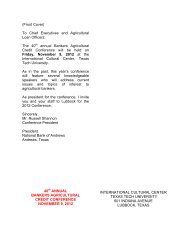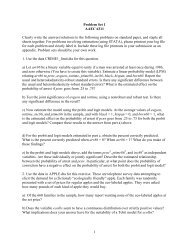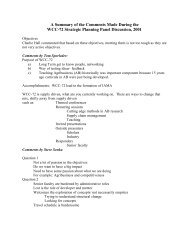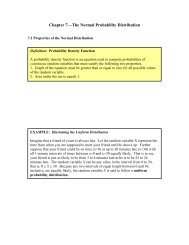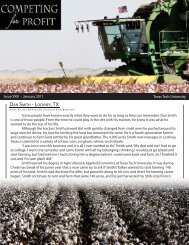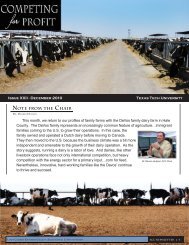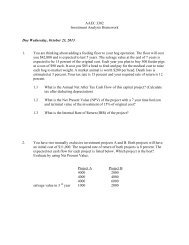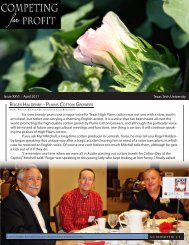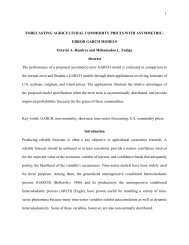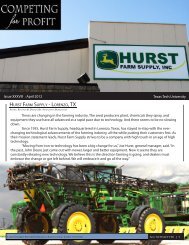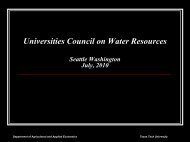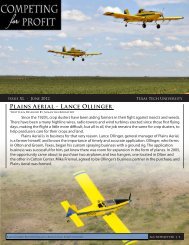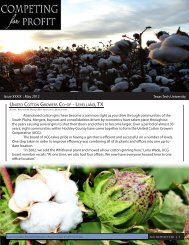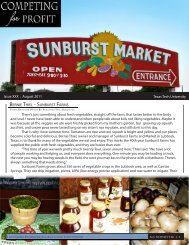Brad Heffington - Texas Tech University
Brad Heffington - Texas Tech University
Brad Heffington - Texas Tech University
You also want an ePaper? Increase the reach of your titles
YUMPU automatically turns print PDFs into web optimized ePapers that Google loves.
ACC NEWSLETTER | 4<br />
Larry Combest Endowed Chair in Agricultur al Competitiveness<br />
from his employees and family for many years.<br />
While <strong>Heffington</strong> can rely on good help<br />
through what looks to be a tough year, he is worried<br />
about his limited water and dryland crops. Although<br />
the majority of <strong>Heffington</strong>’s fields are irrigated, he<br />
said the irrigation is set up to supplement rainfall, as<br />
most of the High Plains irrigation is set up to do. His<br />
wells are continuing to pump an adequate supply of<br />
water for now, but he needs to continue to be cautious<br />
with his water output to ensure that enough<br />
water will be available in the future, and to do that<br />
<strong>Heffington</strong> needs timely and adequate rains.<br />
“The weather and policy you cannot control,”<br />
<strong>Heffington</strong> said, “which creates lots of challenges for<br />
farmers. We may have better seed varieties and technologies<br />
for using water, but no matter what, we still<br />
need the rain.”<br />
Along with rain, <strong>Heffington</strong> said farmers also<br />
need good policy.<br />
“Farm policy is geared to small farmers,” <strong>Heffington</strong><br />
said. “We aren’t small farmers anymore. We are<br />
big businesses, real businesses, and we are a very few<br />
feeding and clothing a lot of people.”<br />
<strong>Heffington</strong> said in order to continue supplying<br />
food and fiber for the world, policy must be written<br />
that provides valuable safety nets for farmers and is<br />
focused on keeping U.S. commodities competitive in<br />
the international marketplace.<br />
“We are coming off a good year,” <strong>Heffington</strong><br />
said. “We made a good crop, received some good<br />
prices, and saw our local economies benefit from all<br />
of that. The thing we must remember is that at the<br />
end of the day it all comes down to the number one<br />
economic rule: supply and demand. If textile mills<br />
need the cotton, then we will see a demand and<br />
good prices. I just hope we have the cotton to supply<br />
them with.”



